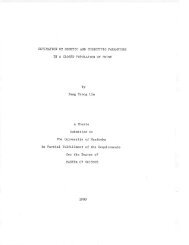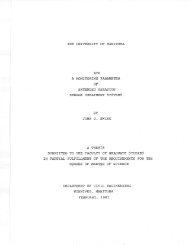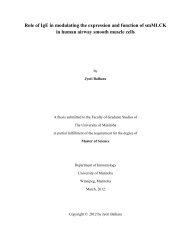Adverbial and Argument-Doubling Clauses in Cree - MSpace
Adverbial and Argument-Doubling Clauses in Cree - MSpace
Adverbial and Argument-Doubling Clauses in Cree - MSpace
You also want an ePaper? Increase the reach of your titles
YUMPU automatically turns print PDFs into web optimized ePapers that Google loves.
. pêmohtêyâhk<br />
cj. walk-along. AI- l pl<br />
'As we(exc1) walked dong.'<br />
8 - ivê<br />
c. têhtapiw<br />
ride. AL3<br />
'he rides (on horseback)'<br />
d. tiyêhtapit<br />
cj. ride. AI-3<br />
'as he rode'<br />
Conjunct verbs also have a different set of <strong>in</strong>flectional end<strong>in</strong>gs h m <strong>in</strong>dependent order<br />
verbs. An exarnple is given <strong>in</strong> (35) below.<br />
(35) a. cân sipwêhtêw.<br />
John leave. AI-3<br />
'John leaves. ' (<strong>in</strong>dependent)<br />
b. cân ê-sipwêhtêt.<br />
John cj-leave. Al-3<br />
'(whenhhat) John leaves.' (conjunct)<br />
While a rnatrix clause may have either an <strong>in</strong>dependent order verb or a conjunct<br />
order verb, a subord<strong>in</strong>ate clause can only appear with a conjunct verb. It is ungrammatical<br />
for a subord<strong>in</strong>ate clause to have an <strong>in</strong>dependent verb form, as shown <strong>in</strong> (36b).<br />
(36) a. ch kiskênimêw awêna kâ-sipwêhtênit. l6<br />
John know. TA-(3-3') who cj -1eave. A[-3'<br />
'John knows who lefi.'<br />
Recall that al1 e.urnples markcd Mth DS are elicited e-xamples <strong>and</strong> <strong>in</strong> Swampy Cm. Notice the<br />
Swmpy <strong>Cree</strong> prosimate end<strong>in</strong>g <strong>in</strong> the conjuna is ait <strong>in</strong>stead of the Pla<strong>in</strong>s <strong>Cree</strong> -yit.



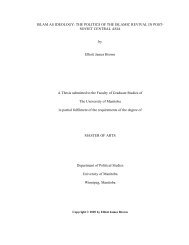
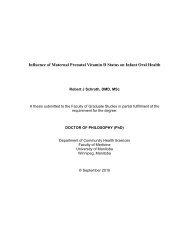
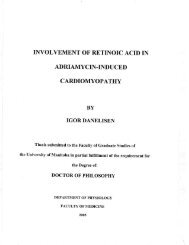
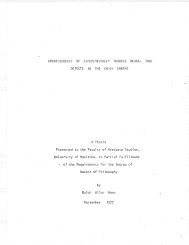
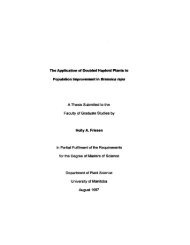
![an unusual bacterial isolate from in partial fulf]lment for the ... - MSpace](https://img.yumpu.com/21942008/1/190x245/an-unusual-bacterial-isolate-from-in-partial-fulflment-for-the-mspace.jpg?quality=85)
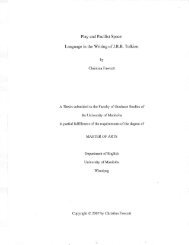
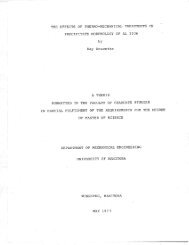
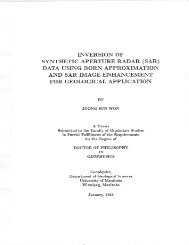
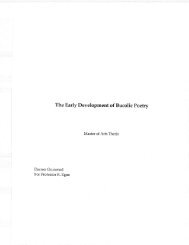
![in partial fulfil]ment of the - MSpace - University of Manitoba](https://img.yumpu.com/21941988/1/190x245/in-partial-fulfilment-of-the-mspace-university-of-manitoba.jpg?quality=85)
